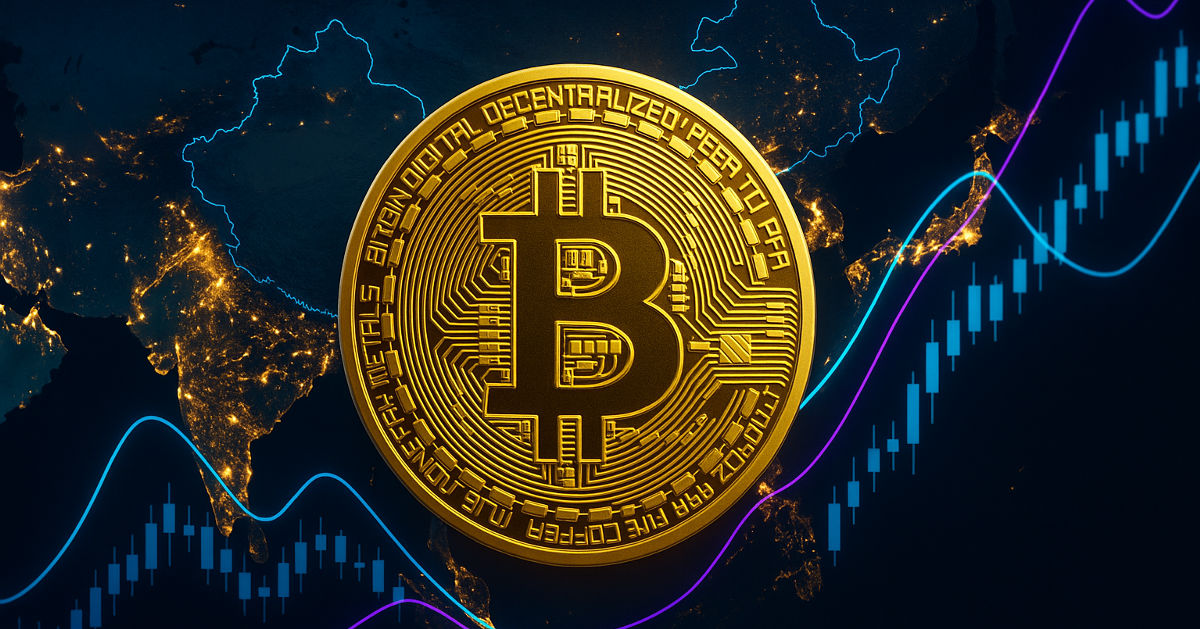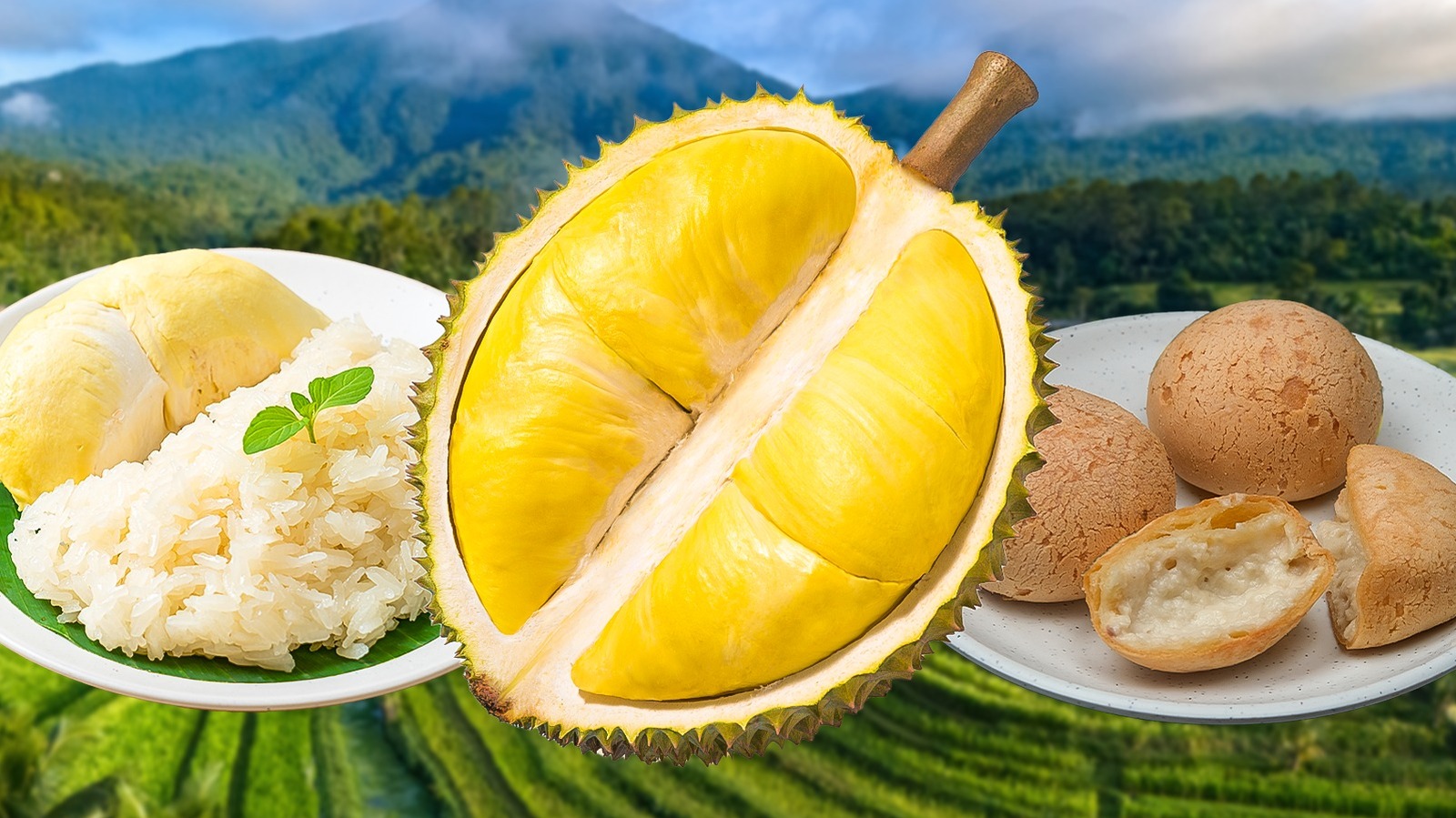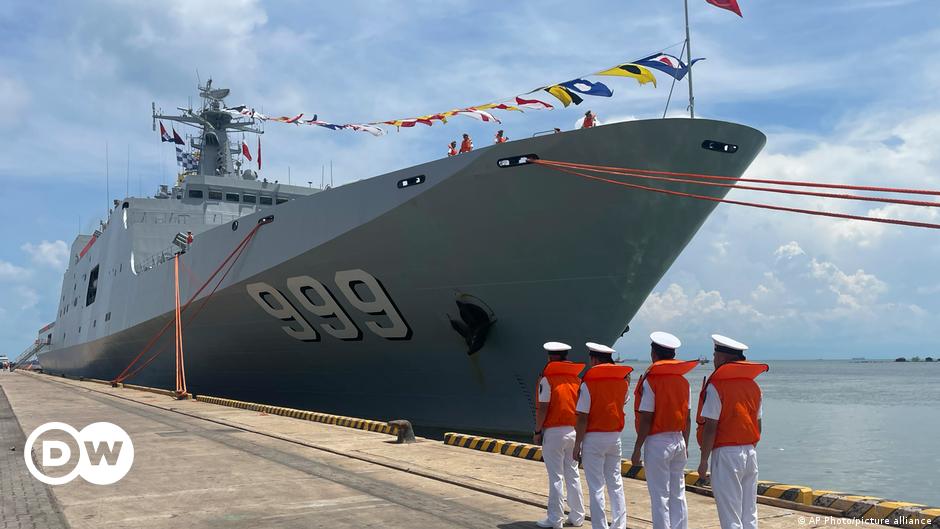#southeast-asia
#southeast-asia
[ follow ]
#human-trafficking #asean #tariffs #travel #landslides #climate-change #china #cybercrime #trade-relations #tourism
fromFortune
5 days agoAsia is one of the world's least insured places, even as it's battered by climate change and natural disasters | Fortune
A lack of insurance coverage in Southeast Asia threatens an increasingly important hub for supply chains, as the region is battered by tropical storms, major flooding, and other natural disasters. Total losses from natural disasters across Asia-Pacific last year totaled $73 billion, yet just $9 billion was insured, according to Germany reinsurance company Munich Re. That makes Asia one of the world's least insured regions against natural disasters.
Business
fromFortune
2 weeks agoTrump's immigrant visa crackdown targets Southeast Asia's Cambodia and Thailand, a decision experts find 'puzzling' | Fortune
The suspension, which will take effect on Jan. 21, is the first time the U.S. is restricting applicants from Cambodia and Thailand, just months after U.S. President Donald Trump inked trade deals with both nations on the sidelines of the 2025 ASEAN Summit. He had assured Southeast Asian leaders at the event that they could view the U.S. as a "strong partner and friend" in the years to come.
US politics
fromIslands
1 month agoThe 5 Best Affordable Cities To Retire In Asia - Islands
But whittling down a retirement city requires careful consideration. While Asian capitals like Bangkok or Manila remain vastly cheaper than American ones, smaller cities off the tourist radar are often the smarter choice when it comes to affordable retirement destinations. Guided by official embassy websites, official tourism boards, retirement program information, and insights from expats who have made the move, here are the best affordable Asian cities to retire in.
World news
fromwww.aljazeera.com
1 month agoCan Southeast Asia cope with record-breaking storms?
Southeast Asia is facing one of its worst storm seasons on record, as thousands of people have died or are missing across Indonesia, the Philippines, Vietnam, Thailand and Sri Lanka. Another storm is currently forming in the Philippine Sea. But while governments are promising to rebuild, it is not clear how they can afford to do so every year as the storm seasons get worse.
Environment
Information security
fromThe Hacker News
2 months agoGoldFactory Hits Southeast Asia with Modified Banking Apps Driving 11,000+ Infections
GoldFactory conducts mobile malware campaigns across Indonesia, Thailand, and Vietnam by distributing modified banking apps and impersonating government services to steal funds.
fromwww.theguardian.com
2 months agoAge of the scam state': how an illicit, multi-billion dollar industry has taken root in south-east Asia
For days before the explosions began, the business park had been emptying out. When the bombs went off, they took down empty office blocks and demolished echoing, multi-cuisine food halls. Dynamite toppled a four-storey hospital, silent karaoke complexes, deserted gyms and dorm rooms. So came the end of KK Park, one of south-east Asia's most infamous scam centres, press releases from Myanmar's junta declared. The facility had held tens of thousands of people, forced to relentlessly defraud people around the world.
World news
Environment
fromFortune
2 months agoGoing green doesn't always mean going big: 'Pay attention to the small- and medium-sized players as well' | Fortune
Emerging economies, notably Southeast Asia, face roughly a $140–150 billion annual green investment gap requiring private capital and MSME-focused support beyond bank debt.
Data science
fromFortune
2 months agoA World Bank expert thinks countries should leverage 'small AI'-and avoid competing with the biggest tech giants | Fortune
Smaller Southeast Asian countries can pursue targeted 'small AI' but require expanded data centers, reliable power infrastructure, and regulatory collaboration to scale.
fromFortune
2 months agoSoutheast Asia needs to 'think bigger' if it wants to compete at the same level as the world's biggest companies | Fortune
Southeast Asia should be well-placed to thrive in a more geopolitically complex world. The region is rich in natural resources, has a young and increasingly wealthy population, and maintains economic and trade links with major economic powers like the U.S., China, India and the Gulf Cooperation Council. Yet during the Fortune Innovation Forum in Kuala Lumpur on Tuesday, Asia Partners co-founder Nicholas Nash challenged Southeast Asian entrepreneurs to be much more ambitious in their aims.
Venture
fromFortune
2 months agoAI may replace people in Southeast Asia's scam complexes-and that could undercut the drive to stop them | Fortune
Hundreds of thousands of workers-hailing from over 50 countries-are currently trapped within Southeast Asia's sprawling scam centers, according to estimates by the United Nations. But humanitarian experts think these workers may soon be replaced by artificial intelligence. In some scam centers, messages initiating contact between scammers and potential victims are already being crafted and sent by AI, says Ling Li, a researcher and co-author of Scam: Inside Southeast Asia's Cybercrime Compounds.
World news
Business
fromFortune
2 months agoYounger customers are venturing back to real-world stores, says AS Watson CEO Malina Ngai: 'They want to be able to touch the product' | Fortune
AS Watson grew from 1841 Hong Kong into a global health and beauty retailer with nearly 17,000 outlets across 31 markets by prioritizing customer understanding.
fromwww.aljazeera.com
2 months agoLandslides kill dozens as heavy rains lash Southeast Asia
Scientists warn climate change making Southeast Asia's rainy season increasingly hazardous. Dozens of people have been killed in Southeast Asia as the rainy season unleashes landslides. At least 18 people have been killed in Indonesia over the past week, authorities said on Monday. In Vietnam, six people were killed late on Sunday when a bus was swept off a road in the centre of the country.
Environment
World news
fromFortune
2 months agoInside the compounds of Asia's $10 billion scam industry, where trafficked staff sleep at work and log 16-hour days texting 'hello' over and over | Fortune
Organized scam compounds in Southeast Asia use coerced labor in massive complexes to run online fraud, defrauding victims of billions worldwide.
fromwww.aljazeera.com
3 months agoAs Southeast Asia welcomes Trump, it battles headwinds unleashed by him
Southeast Asia and its China Plus One' supply chain are feeling the fallout from the US trade war. Southeast Asia was one of the biggest winners from United States President Donald Trump's trade war with China in 2018, luring manufacturers to the region to avoid new tariffs on Chinese goods. It benefitted from investment, tax revenues and technology transfers that came with the expanding China Plus One supply chain concept.
World news
Travel
fromBusiness Insider
3 months agoI've traveled solo across Southeast Asia for 15 years. These are 3 cities I always recommend - and one I'd skip.
Southeast Asia offers unmatched exotic diversity, with cities like Phuket, Luang Prabang, and Ho Chi Minh City ideal for solo travel; Kuala Lumpur now feels disappointing.
fromFortune
3 months agoThe U.S is drowning Southeast Asia in a 'hidden tsunami' of toxic e-waste, 2-year investigation finds | Fortune
Millions of tons of discarded electronics from the United States are being shipped overseas, much of it to developing countries in Southeast Asia unprepared to safely handle hazardous waste, according to a new report by an environmental watchdog. The Seattle-based Basel Action Network, or BAN, said a two-year investigation found at least 10 U.S. companies exporting used electronics to Asia and the Middle East, in what it says is a "hidden tsunami" of electronic waste.
Environment
fromFood & Beverage Magazine
3 months agoKirin Brewery Outlines Global Growth Roadmap: New Southeast Asia HQ, Expanding Flagship Brands, and International Partnerships - Food & Beverage Magazine
The cornerstone of Kirin's global strategy centers on the establishment of Kirin Brewery Southeast Asia in Kuala Lumpur, Malaysia, which officially launched on October 1st as the company's dedicated Southeast Asia regional headquarters. This strategic positioning reflects the growing importance of the Southeast Asian market in the global food and beverage industry, where rising disposable incomes and evolving consumer preferences create unprecedented opportunities for premium beverage brands.
Food & drink
World news
fromwww.theguardian.com
3 months agoThe Guardian view on the online scam industry: authorities must not forget that perpetrators are often victims too | Editorial
A transnational scam industry exploits victims both deceived and trafficked into forced labor, operating through guarded compounds across multiple countries.
Environment
fromwww.theguardian.com
4 months agoTyphoon Bualoi death toll rises to at least 30 across Vietnam, Thailand and Philippines
Typhoon Bualoi caused over 30 deaths, widespread flooding and landslides across Vietnam, the Philippines and Thailand, overwhelming communities and threatening heritage sites.
Canada news
fromwww.cbc.ca
4 months agoOntario minister picks up trade mission pace as tariffs heighten need to diversify | CBC News
Ontario is accelerating trade missions to diversify from the United States and attract Southeast Asian life‑sciences and tech investment to boost economic growth and jobs.
World news
fromNon Profit News | Nonprofit Quarterly
4 months agoInternational Nonprofits After USAID: A View from the Global South - Non Profit News | Nonprofit Quarterly
A USAID funding halt in 2025 nearly collapsed Manushya, jeopardizing life-saving emergency grants and forcing a rapid pivot to foundation funding.
fromWorld Wild Schooling
5 months ago12 Southeast Asian Spots Where This Digital Nomad Is Living the Dream (and You Could Be Too)
Having the opportunity to travel and work at the same time is a great privilege and one I enjoy immensely. However, unlike 'normal' travelers or vacationers, as a digital nomad, you have to be a bit more selective about where you go. Will the area have good WiFi? Are there co-working spots or cafés quiet enough where you can make a call? Is the cost of living manageable in the long run?
Travel
fromFortune Asia
5 months agoSoutheast Asia's 'incredibly dynamic' Islamic finance market is drawing in non-Islamic players
Over 280 million Southeast Asians, about 40% of the region's population, identify as Muslim. That's spawned demand for goods and services that cater to a more Islamic lifestyle. It's more than just halal food: Muslim consumers also demand more modest fashion or cosmetics that don't use pig-derived products or alcohol. Even Southeast Asia's finance sector is becoming more halal. Islamic finance in Southeast Asia totaled roughly $859 billion in 2023, up from $754 billion in 2020.
Startup companies
fromwww.theguardian.com
6 months agoRubio in bind as he seeks to reassure Asia, even as region faces punishing Trump tariffs
"Even as they face among the most punitive tariffs globally, US secretary of state Marco Rubio has sought to reassure southeast Asian nations of Washington's commitment to the region."
US politics
fromstupidDOPE | Est. 2008
7 months agoCarhartt WIP and The Salvages Unite for a Subcultural Celebration in Singapore | stupidDOPE | Est. 2008
Together, the two have created a collaboration that serves as a cultural conduit. It's about more than just limited-edition gear - it's about capturing the soul of a scene and amplifying voices often overlooked in global conversations.
Fashion & style
fromFortune Asia
7 months agoFinancial services are pushing up the revenues of the Southeast Asia 500's most prominent tech startups
Sea's digital financial services arm, rebranded to Monee, achieved nearly 35% growth last year, reaching $2.4 billion, showcasing the growing demand for fintech in the region.
European startups
European startups
fromwww.aljazeera.com
7 months agoAs Trump's tariffs loom, Southeast Asia's solar industry faces devastation
US tariffs threaten the green energy sector in Southeast Asia, causing job losses and uncertainty about the future of solar exports.
The imposition of substantial tariffs from the US is disrupting the solar panel industry across Thailand, Cambodia, Vietnam, and Malaysia.
fromwww.dw.com
8 months agoWhy are scammers still thriving in Southeast Asia? DW 05/15/2025
"This is organized crime with a really high degree of sophistication and the continued adoption of new technology," Hofmann told DW. "The industry is growing and becoming more complex almost on a daily basis."
US news
[ Load more ]









:max_bytes(150000):strip_icc()/TAL-header-henry-golding-celeb-check-in-HENRYGOLDINGCCI0825-22613562d22f42bd97bd60e9c2e79e5a.jpg)
:max_bytes(150000):strip_icc()/tl-cross-retailer-roundup-packing-list-for-hot-tout-526f00687b1243528d140f2683ba35a9.jpg)



